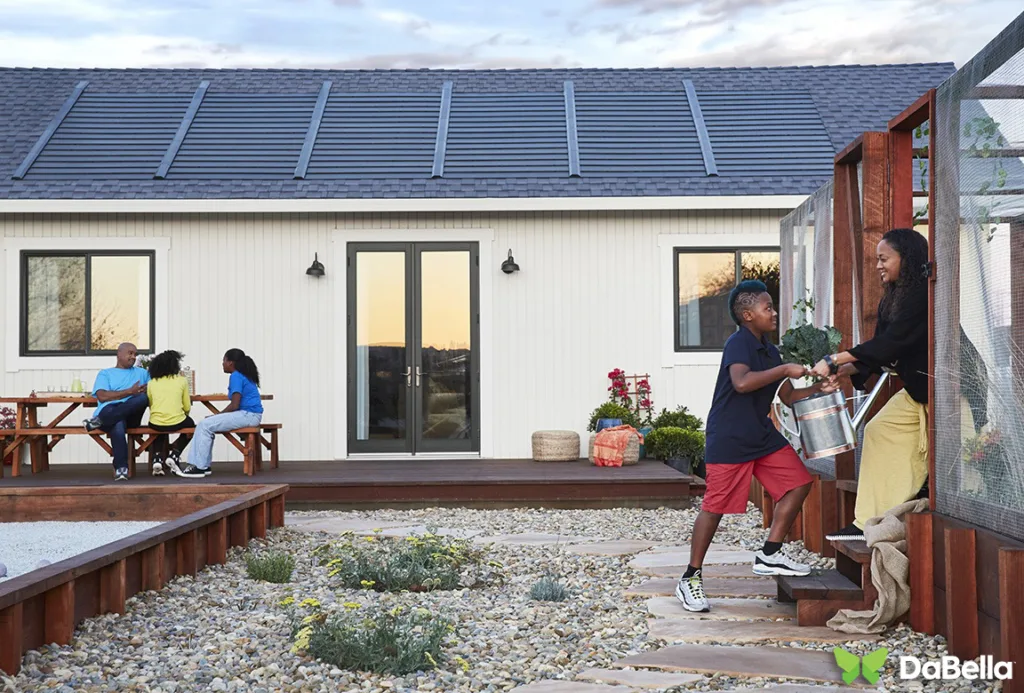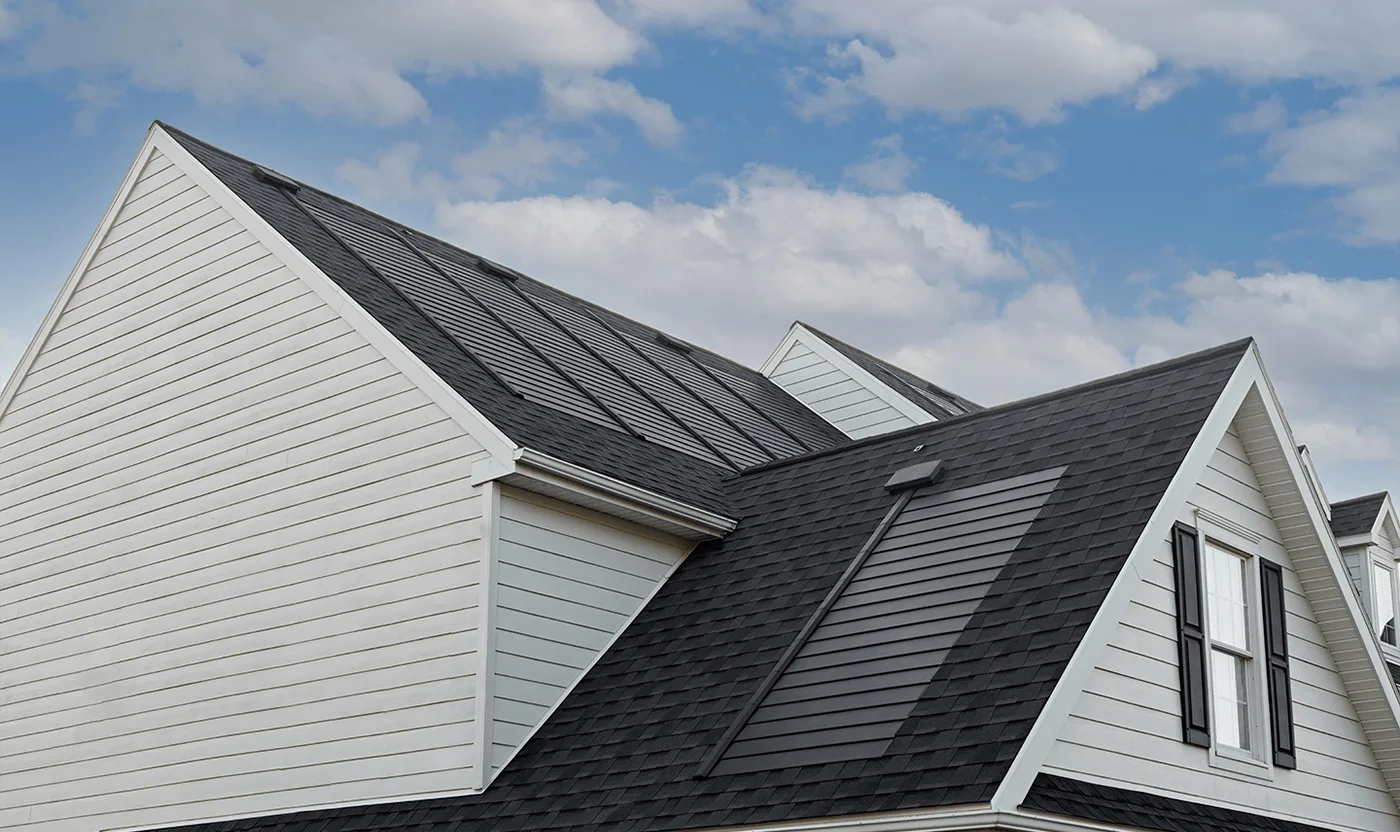Solar energy is a renewable power source that utilizes the sun’s energy to generate electricity. As a clean and sustainable alternative to fossil fuels, it is becoming increasingly popular among homeowners and businesses. Solar energy boasts numerous benefits, including lower electricity bills, reduced carbon emissions, and enhanced energy independence. However, there are also challenges, such as the initial installation cost and the dependency on sunlight. Overall, solar energy is a promising technology that contributes significantly to a sustainable future.
How Does Solar Electricity Work? Solar Energy Basics You Should Know
Understanding the basics of solar energy is crucial for grasping its working principles and benefits. Solar energy is harnessed from the sun’s radiation, making it a clean and sustainable alternative to conventional energy sources like fossil fuels. The conversion process involves several steps. Initially, solar panels or solar shingles capture sunlight. Solar panels are made up of smaller units called photovoltaic (PV) cells. These cells, often made from silicon like the kind used in computer chips, can turn sunlight into electricity.
There are various types of solar energy systems, with solar panels and solar shingles being the most common. Solar panels are large, flat panels mounted on rooftops or ground-mounted in open areas. They consist of arrays of PV cells that generate electricity when sunlight hits them. In contrast, solar shingles are designed to resemble regular roof shingles and can be integrated into the existing roof structure. These shingles contain PV cells and serve a dual purpose of providing protection from the elements while generating electricity.
How Do Solar Panels & Solar Shingles Work?
Solar panels and solar shingles are two popular methods for harnessing the sun’s power and converting it into usable energy. Let us explore how each technology functions.
How do Solar Panels Work?
Solar panels, also known as photovoltaic (PV) panels, consist of multiple solar cells made of semiconductor materials, typically silicon. The cells are connected in series, and the generated electricity is converted from direct current (DC) to alternating current (AC) by an inverter, making it suitable for powering homes and businesses.
How do Solar Shingles Work?
Solar shingles, also known as solar roof tiles, blend seamlessly with traditional roof materials, providing a more aesthetically pleasing option for solar energy generation. Solar shingles function similarly to solar panels but are integrated into the roof itself. Each solar shingle contains photovoltaic cells that capture sunlight and convert it into electricity, which can power portions of your home or be stored in a battery for later use.

Advantages of Solar Energy
Solar energy offers numerous advantages, making it an attractive option for homeowners and businesses alike.
First and foremost, solar energy provides significant environmental benefits. Unlike traditional energy sources such as coal or natural gas, solar power generates electricity without harmful emissions or contributing to air pollution. By harnessing the sun’s power, solar panels help reduce greenhouse gas emissions and combat climate change.
In addition to environmental benefits, solar energy also brings financial advantages. Installing solar panels can lead to substantial savings on energy bills. As the sun’s energy is free, generating electricity from solar power can significantly reduce monthly utility costs. Moreover, many states offer incentives, tax credits, and rebates to encourage the adoption of solar energy systems, making them even more cost-effective.
Another advantage of solar energy is the independence and security it provides. This not only reduces the risk of power outages but also protects against rising energy costs. With solar energy, homeowners gain control over their energy production and consumption, ensuring a stable and reliable power source.
Disadvantages of Solar Energy
While solar energy has many advantages, it also comes with a few disadvantages to consider. Understanding these drawbacks can help you make an informed decision about whether solar energy is the right choice for you.
One of the main disadvantages of solar energy is the initial cost and return on investment. While solar panels have become more affordable over the years, the upfront cost of installing a solar energy system can still be significant. However, it is important to note that the long-term savings on energy bills can offset this initial investment. Additionally, various financing options and incentives are available to help make solar energy more accessible.
Another disadvantage is the intermittency of solar energy and the need for energy storage. Solar panels only generate electricity when the sun is shining, meaning they cannot produce power during cloudy days or at night. To overcome this limitation, energy storage systems such as batteries are used to store excess energy generated during sunny periods for use when the sun is not available. However, these storage systems can add to the overall cost of a solar energy system.
Lastly, solar energy is dependent on sunlight and weather conditions. If you live in an area with frequent cloudy or rainy days, the efficiency of your solar panels may be reduced. Similarly, during winter months with shorter daylight hours, solar energy production may be lower. It is important to consider your geographical location and climate when evaluating the suitability of solar energy for your needs.
Despite these disadvantages, solar energy remains a clean and renewable energy source that can help reduce carbon emissions and lower energy costs over time.
How Does Solar Power Work With Solar Photovoltaic Technology?
Solar panels, also known as photovoltaic (PV) panels, are the primary component of solar energy systems. They work by converting sunlight into electricity through a process called the photovoltaic effect.
Photovoltaic cell construction is a crucial aspect of solar technology. Each solar panel or shingle is made up of numerous small units called photovoltaic cells. These cells are typically made of semiconductors, such as silicon, which have special properties that enable them to convert sunlight into electrical energy.
Several factors affect the efficiency and performance of solar panels. One crucial factor is the quality of the photovoltaic cells used. Higher-quality cells can convert a greater percentage of sunlight into electricity. Another factor is the orientation and tilt of the solar panels. Properly positioning the panels to face the sun directly maximizes their exposure to sunlight. Additionally, external factors like shading from trees or buildings can reduce panel efficiency.
Benefits and Considerations for Installation
Solar water heating offers several benefits. It reduces energy costs by utilizing the sun’s free and renewable energy source. It also helps to reduce greenhouse gas emissions and dependence on fossil fuels. Additionally, solar water heating systems have a long lifespan and require minimal maintenance. However, there are some considerations to keep in mind when installing a solar water heating system, such as the availability of sunlight, the size of the system required, and the upfront installation costs.
By harnessing the sun’s power, solar water heating systems provide a sustainable and efficient way to heat water, offering both environmental and financial advantages. If you are interested in exploring solar water heating options for your home or business, contact DaBella today for expert advice and high-quality solar solutions.
Contact DaBella if You Are interested in Solar Shingles
If you are considering solar energy for your home in Portland, Vancouver, or California DaBella is here to help you make the right choice. We are proud to offer GAf’s Timberline solar shingles, a revolutionary solution that seamlessly integrates solar power into your roof.
Solar shingles are designed to look just like regular shingles, blending in perfectly with the aesthetics of your home. They are an excellent option for homeowners who want to harness the sun’s power without the need for bulky solar panels. The GAF timberline Solar Shingles also come with a 25-year warranty on the solar output as well.
With GAf’s Timberline solar shingles, you can enjoy the benefits of solar energy while maintaining the beauty of your roof. These shingles are made with high-quality materials and advanced solar technology, ensuring optimal performance and longevity.
If you are interested in learning more about solar shingles and how they work, contact DaBella today. Our team of experts will provide you with all the information you need and guide you through the process. Contact us today at 844-DaBella to schedule a consultation. Let us help you transform your home into a clean energy powerhouse!

